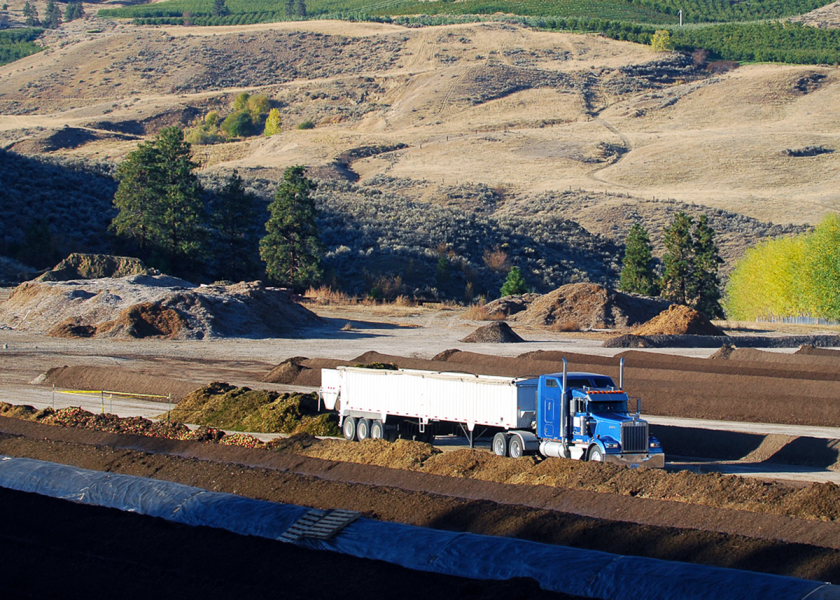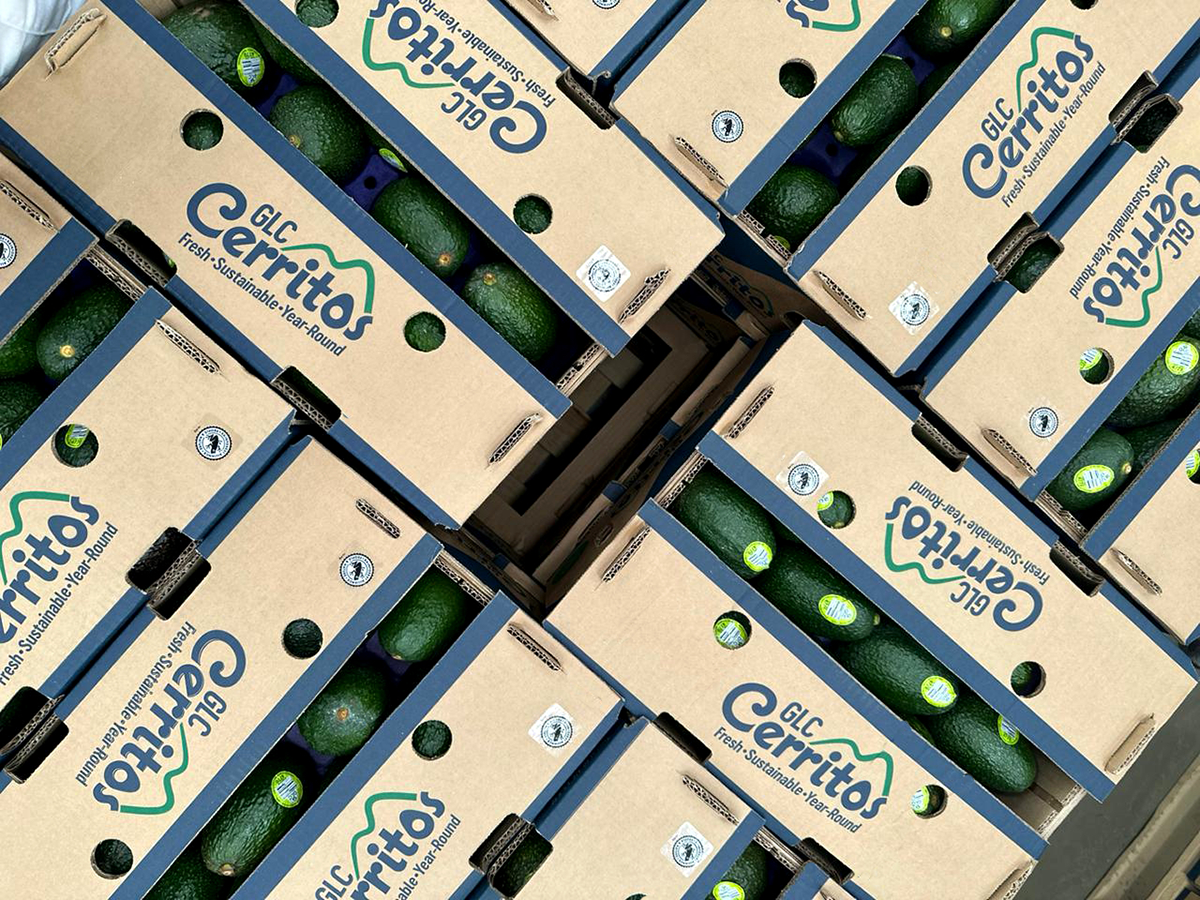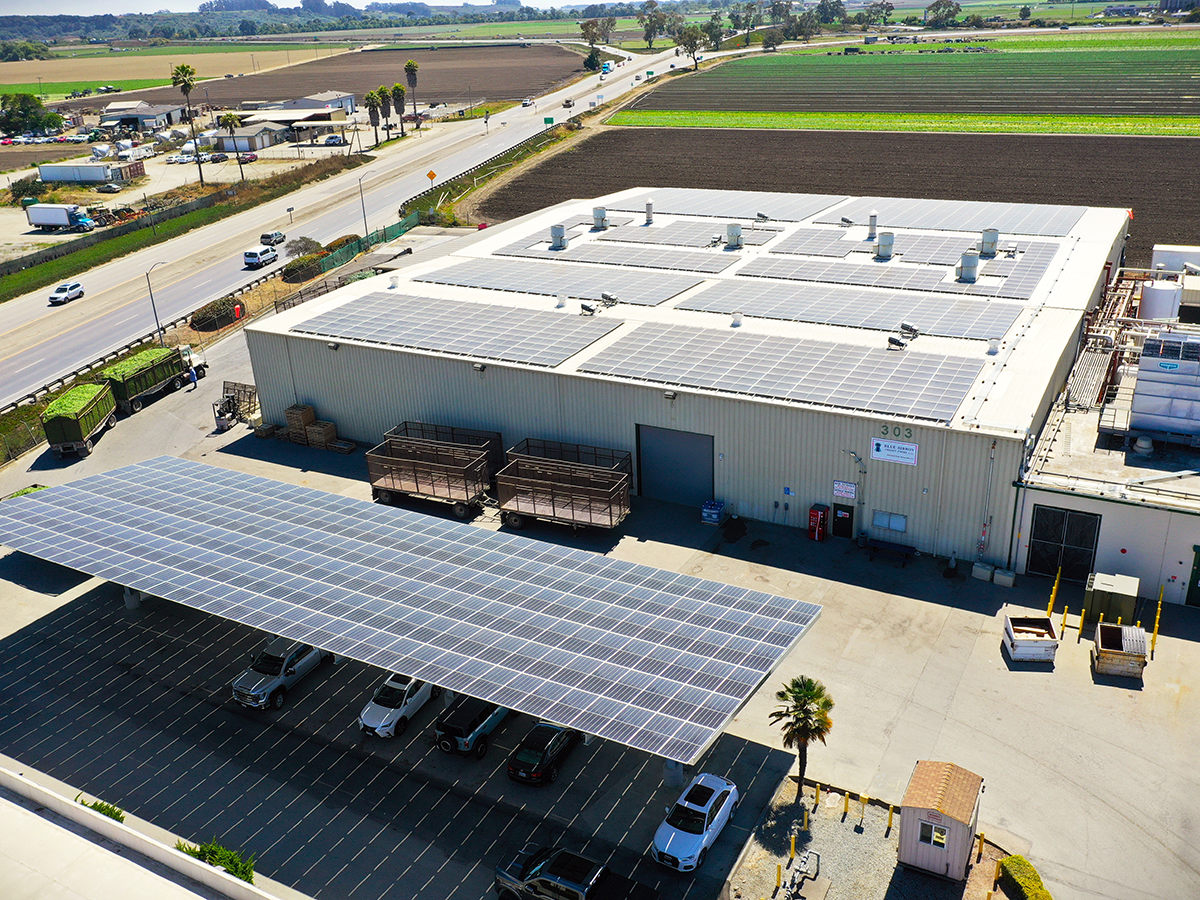As the fresh produce supply chain pursues sustainability, industry says challenges remain

Whether it’s increased scrutiny on food waste, possible plastic packaging bans or crackdowns on water use, sustainability continues to be a significant driver in the fresh produce industry. With the added demand comes many opportunities to highlight what companies are already doing to address such issues, according to those throughout the supply chain.
Giovanni Cavaletto, U.S. division president of avocado grower and shipper GLC Cerritos, says growers working on multigenerational farms are inherently conservationists.
“Farmers are always looking to take care of the places where they live in and work,” he said. “A lot of times they’ll be working the same properties that their parents and grandparents farm, and so there’s already kind of a built-in [idea of] ‘This is going to last for a while.’ It’s been handed down.”
Jon Roesser, general manager of Weavers Way, a Pennsylvania-based member-owned cooperative grocer, says sustainability is an essential part of the retailer’s values, whether it’s using extra produce for in-store prepared food, donating produce to a local food bank or sending food scraps to a high school-operated farm and composting center.
“As a matter of policy, we need to factor environmental considerations into all business decisions,” he said. “When it comes to sustainability efforts, it’s sort of baked into our business model because it’s been identified by our members as something important to them.”
A grocer’s perspective
Roesser says the company’s values sometimes conflict with its objective as a grocer.
Take blueberries, for example. Some co-op members see blueberries as seasonal fruit and should only be available from local sources in the Philadelphia metro area, he said, and other members don’t want to shop at another store to purchase blueberries when they’re not available locally.
“We have to accept that to run a full-service grocery store means accepting certain environmental compromises,” Roesser said. “We take every reasonable mitigation step we can take.”
He said that includes sustainable packaging, cutting down on food waste and using renewable energy to run the stores.
Weavers Way only carries organic, fair-trade bananas. Some members want the retailer to carry conventionally grown bananas at a lower price point, Roesser said, but bananas are one category the retailer holds firm in its offerings based on sustainable sourcing.
“That is a decision that we made a long time ago and stuck to over the years despite market pressures to occasionally reexamine that decision,” he said. “I try to convey to our members that you are not going to agree with every product philosophy decision we make. We think much longer and much harder about this stuff than your conventional grocery store ... and we think there is more nuance to how we arrive at our decisions.”

A grower’s perspective
Cavaletto of GLC Cerritos says a focus on GlobalGAP and Rainforest Alliance certifications was an investment in time and money, but it helped the company gain entry to key European accounts. He said the company sees social sustainability as a critical component.
GLC Cerritos participates in Stronger2Gether, which uses Clearview U.S. to offer global responsible recruitment certification. Stronger2Gether helps GLC Cerritos recruit and keep the best workers, Cavaletto said.
“We really look at it as an investment in the long term,” he said. “It is, in essence, favorable long term both on the social responsibility side as well as the environmental side.”
Cavaletto said the company sometimes struggles with competing values of food safety and sustainability.
“Trying to find a balance between the two, sometimes it feels like those two components are fundamentally in conflict,” he said.
Janis McIntosh, director of marketing innovation and sustainability at Salinas, Calif.-based producer and marketer Naturipe Farms, said the company uses sustainable farming practices such as composting, chop-and-drop pruning and drip irrigation.
McIntosh said Naturipe also focused on using greener transportation and renewable energy. “Just this year our flagship cooler in Watsonville, Calif., switched to solar energy, resulting in an estimated 1,181 metric tons of CO2 avoided each year.”
Brianna Shales, marketing director for Wenatchee, Wash.-based Stemilt Growers, a packer, grower and distributor of tree fruit, said the company formalized its Responsible Choice social responsibility and sustainability program in 1989.
“Caring for the land is what will make our business sustainable for future generations to come,” she said. “Integrated pest management was one of the first initiatives Stemilt tackled and is now commonplace today.”
Shales said Stemilt also created a dedicated pollinator habitat as part of its Bee Friendly Farming certification and uses a large-scale compost farm and green waste capture program at its packing facilities.
“It’s a circular approach to sustainability,” she said. “We also track and evaluate waste, recycling, water usage, electricity and more to save money and have positive environmental impacts.”
Shales said Stemilt’s orchards and warehouses also meet the Equitable Food Initiative’s certification standards for food safety, integrated pest management and responsible labor practices.
“Most sustainability initiatives that are implemented are ones that are going to pay back in time, either through cost savings or efficiencies,” she said.

Packaging companies’ perspectives
Rachel Kenyon, senior vice president of the Fibre Box Association, says the corrugated industry’s life-cycle assessments show a dramatic shift in the environmental impact of U.S.-produced corrugated boxes. The association estimates corrugated products use about 52% recycled content on average.
“The industry has reduced its per-unit greenhouse gas emissions for an average U.S. corrugated box by 50% from 2006 to 2020,” she said.
She says the industry also saw a reduction in ozone depletion, energy and water usage, acid rain, smog and more. The industry also saw notable improvements in energy efficiency, recycling infrastructure and sustainably managed forests.
“As an industry, they have been proactively working to minimize their environmental impacts since long before ‘sustainability’ became a buzzword, let alone a business imperative,” she continued. “Many of our members are publicly traded companies, so their efforts and results are now folding into ESG reporting programs.”
Karen Reed, global director of marketing and communications for Kwik Lok Corp., says CEO Don Carrell saw a need to explore plastic alternatives years ago before he took the helm of the Yakima, Wash.-based bag closure company. Kwik Lok started using its bioplastic solutions before regulations arose and before consumers pressured manufacturers to cut plastic use.
“I’ve never seen the sustainability visibility be as high as it is right now,” she said.
Reed said finding sustainable closure solutions for the produce industry is a challenge.
“Produce, in particular, is going to likely be in a cooler, wetter environment,” she said. “So that makes it an interesting challenge to come up with a better than the plastic that we have been using, which has been polystyrene.”
Bioplastics break down quicker and are not necessarily a fit for produce closures, she said, adding that Kwik Lok launched a polypropylene-based closure called Enviro-Lok that uses 34% less plastic than the company’s standard closures.
“It’s set up better for recycling,” Reed said.
Roadblocks to sustainability
Roesser of Weavers Way says satisfying consumer demands is a challenge for universal sustainability efforts. While consumers often motivate retailers to opt for more sustainable practices, they also have shopping expectations of convenience and value.
“I’m as guilty as everybody else,” Roesser said. “All of us have come to expect that our produce is going to be forever abundant, cheap and available whenever we want. And if that means turning a blind eye to fossil fuel use, pesticide use, worker exploitation and single-use plastic use in the name of affordability and convenience, then for a lot of consumers, that’s all that matters to them.”
Roesser says grocers, too, suffer from the need for convenience and value. They must keep shelves filled and often choose a more reliable and consistent vendor to maintain competitiveness.
“We, as a retailer, also face roadblocks because running a retail grocery store is hard work,” he said. “Sustainability efforts — it’s so easy for those to get put on the back burner. It’s not that we don’t care about them, it’s just that we’ve got a business to run here.”
Roesser said it’s also hard for consumers to understand that sustainability is about the long game. Efforts today might not be understood or appreciated until years later.
“I think it really incumbent upon us, as retailers and consumers, to be constantly reminding ourselves that this has to be a priority, and we have to get innovative, and we have to change our mindset,” he said.
Kwik Lok’s Reed says with so much information — and disinformation — it often feels like the Wild West; regulations can vary from each state and municipality, which adds an additional challenge.
“Even if I want to do the right thing, what is the right thing?” she said.
Future of sustainability
Robby Johnson, senior manager of corporate communications for Atlanta-based WestRock Co., a provider of differentiated paper and packaging solutions, says the regulatory environment is constantly evolving.
“Canada is leading the charge in North America, making broader sweeps at plastic reduction — including nationwide single-use plastic bans most recently targeted directly at the fresh produce industry,” he said.
In a pre-proposal regulation, Environment and Climate Change Canada — the government agency responsible for environmental policy — called for 75% of all fresh produce sold in the country to be sold in bulk or nonplastic packaging by 2026 and to increase to 95% by 2028.
McIntosh of Naturipe Farms said she sees sustainability certifications becoming more common for those working in the produce industry.
“Like food safety certifications, I see the potential of environmental sustainability certifications becoming more prevalent, meeting the needs of the retailer and consumer,” she said.
Shales of Stemilt Growers said she sees technology taking an active role in the future of sustainability efforts. Sustainability standards would also help the industry better measure efforts and help companies direct resources toward making a bigger impact, she said.
“We need easier ways to measure inputs related to sustainability,” she says. “It can be quite complicated to collect data on water usage, for instance, because it varies from one season to another and from one orchard to another. We need to make it easier on farmers and suppliers to collect and relay the data, which is what really helps move the needle on sustainability initiatives.”
Reed says consumers will continue to pressure manufacturers to find better solutions, adding that industry involvement is another critical part of sustainability’s future. She said Kwik Lok participates in global and national plastics organizations and the International Fresh Produce Association to advocate for the responsible use of plastics in the fresh produce industry.
“Packaging plays a role in food not getting wasted,” Reed said. “We need to make sure that the systems we have in place are going to help us manage that problem. The number of people who are really wrapping their minds around this is enormous. We just have to keep moving forward. It’s not a straight line, it’s a zigzag. We’ve got to just keep doing our best. It’s not easy, it’s not going to happen tomorrow.”







